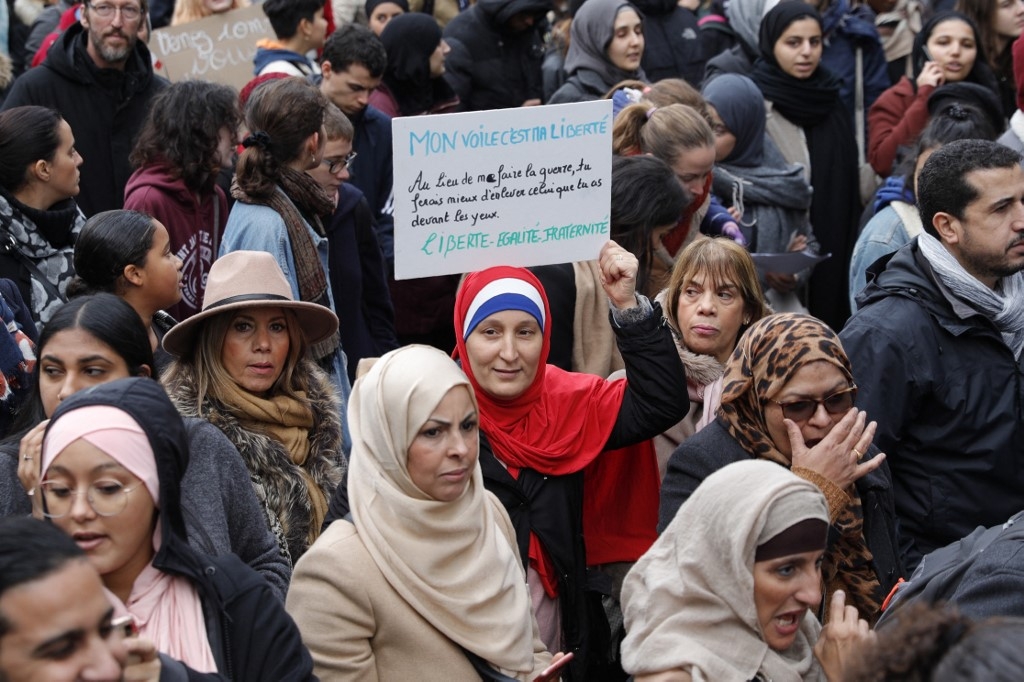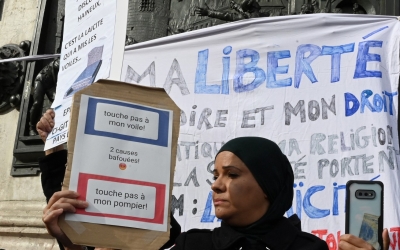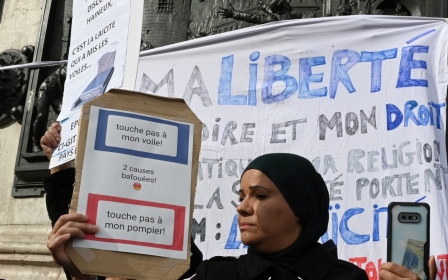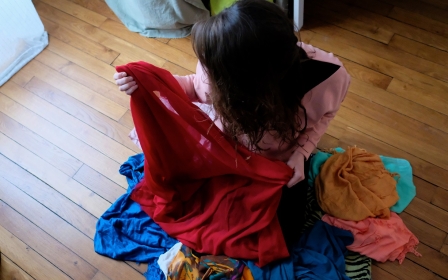France to ban Muslim students from wearing the abaya in state-run schools

France will ban Muslim students from wearing the abaya, a full-length robe worn by many Muslim women, in state-run schools, the country's education minister has said ahead of the start of the new academic year.
"I have decided that the abaya could no longer be worn in schools," Education Minister Gabriel Attal said in an interview with the French TV channel TF1 on Sunday.
"Secularism means the freedom to emancipate oneself through school," he said, describing the abaya as "a religious gesture, aimed at testing the resistance of the Republic towards the secular sanctuary that school must constitute."
Attal's decision was condemned by some members of the opposition, with Clementine Autain of the left-wing France Unbowed party criticising the "policing of clothing."
She accused the government of harbouring an "obsessive rejection" of the country's estimated five million Muslim population, and said Attal's announcement was "unconstitutional."
Stay informed with MEE's newsletters
Sign up to get the latest alerts, insights and analysis, starting with Turkey Unpacked
The announcement was the first big move by Attal since being promoted in the summer to handle the hugely contentious education portfolio.
Activists and rights groups have long expressed concern that an intense focus on the hijab - often under the guise of policies prohibiting religious symbols was a symptom of normalised Islamophobia in some EU countries.
France, which has enforced a strict ban on religious signs in state schools since 19th-century laws removed any traditional Catholic influence from public education, has struggled to update guidelines to deal with its Muslim minority.
In 2004, France banned "the wearing of signs or outfits by which students ostensibly show a religious affiliation” in schools. This ban included large crosses and Jewish kippas as well as Islamic headscarves.
In 2010, it passed a ban on full-face veils in public, a decision which the United Nations Human Rights Committee decried as violating human rights.
Unlike headscarves, the abaya - a garment worn to comply with Islamic beliefs on modest dress - occupied a grey area until last November.
The Education Ministry issued a circular at the time including the abaya in a group of items of clothing which could be banned should they be donned "in a manner as to openly display a religious affiliation."
A spokesperson from the office for the UN High Commissioner for Human Rights told Middle East Eye that while the body was "aware of the reported announcement" it was "not in a position to comment in detail, given that it is not clear what exactly is planned nor how it would be implemented."
"However, on this topic, it is worth recalling that according to international human rights standards, limitations on manifestations of religion or belief, including choice of clothing, are only permitted in very limited circumstances – including public safety, public order, and public health or morals. In addition, under international human rights law, measures adopted in the name of public order must be appropriate, necessary, and proportionate," the spokesperson said.
Middle East Eye delivers independent and unrivalled coverage and analysis of the Middle East, North Africa and beyond. To learn more about republishing this content and the associated fees, please fill out this form. More about MEE can be found here.





